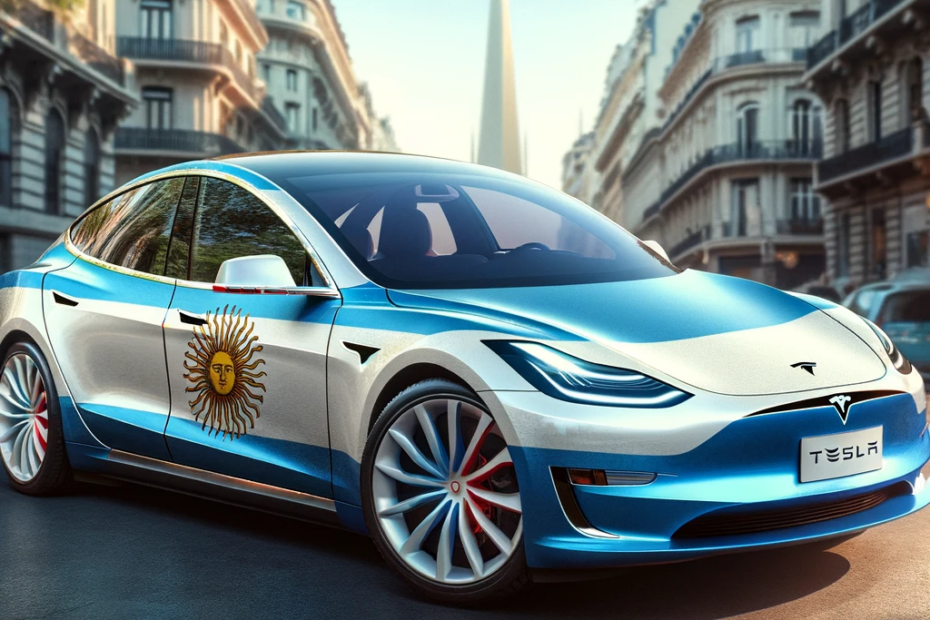Argentina’s lithium resources have become a focal point of global interest, thanks to recent dialogues between the country’s President Javier Milei and visionary entrepreneur Elon Musk. This burgeoning interest could have profound implications for both Argentina’s economy and the global lithium market. As a pivotal member of the “lithium triangle,” alongside Chile and Bolivia, Argentina holds a significant portion of the world’s lithium reserves, a crucial component for the production of electric vehicle (EV) batteries and renewable energy storage systems.
Argentina’s Lithium Boom
Argentina has experienced a significant surge in its lithium exports, with a 234% increase in 2022. This growth is part of a broader trend in the global demand for lithium, which is expected to continue to rise. Analysts predict that Argentina could become the world’s third-largest lithium producer in the near future. By 2026, projections suggest that Argentina’s lithium production could more than triple, positioning the country as a key player in the global energy transition
Argentina is also moving forward with a bilateral agreement with the United States on Argentine lithium. This development follows the U.S. President Joe Biden’s approval of the Inflation Reduction Act (IRA), which allocates US$400 billion for the energy transition. The increased demand for lithium, as a result of this act, is expected to rise fourfold, further boosting Argentina’s lithium industry.
President Milei’s Economic Reforms
Under the leadership of President Javier Milei, who assumed office in December 2023, Argentina is undergoing significant economic transformation. Milei’s administration, rooted in anarcho-capitalist principles, has drastically reduced government size by halving ministries and suspending new infrastructure projects, emphasizing minimal state interference in economic matters.
This approach extends to the mining sector, where Milei is keen on fostering a conducive environment by streamlining bureaucratic procedures, reforming governmental regulations, and modernizing management technologies. These reforms aim to reduce bureaucratic complexity, eliminate inefficiencies, and lessen the corporate burden, ultimately catalyzing investment and growth in critical sectors like lithium mining.
Economic Impact on Argentina
The economic impact on Argentina could be substantial. Increased lithium production and exports can provide a much-needed boost to the country’s economy, which has been struggling with high inflation and debt. The development of the lithium sector could create jobs, generate foreign investment, and lead to technological advancements.Companies currently operating in Argentina, such as Ganfeng Lithium and Livent Corp, are likely to benefit from this growth. The merger between Allkem and Livent, creating a company valued at $10.6 billion, indicates a consolidation of efforts to capitalize on Argentina’s lithium resources.
Global Implications
The dialogues between President Milei and Elon Musk, along with the broader interest in Argentina’s lithium resources, signal a potentially transformative period for the global lithium market. As the world transitions to cleaner energy sources and EVs, Argentina’s lithium reserves could play a pivotal role in this global shift. The global lithium market size was valued at $37.8 billion in 2022 and is projected to grow to $89.9 billion in 2030. Argentina’s potential to match or even surpass neighboring Chile as a major lithium producer could significantly influence this market
The talks between President Milei and Elon Musk have ignited a new era of economic opportunity for Argentina. As the world increasingly turns to clean energy and EVs, Argentina’s lithium reserves stand to play a pivotal role in this global shift. The potential economic impact on Argentina is substantial, promising job creation, foreign investment, and technological advancements. As such, the Milei-Musk dialogue could mark the dawn of a new economic era for Argentina, powered by the “white gold” of lithium.
![LOGO [återskapat] LOGO [återskapat]](https://batteryjuniors.com/wp-content/uploads/elementor/thumbs/LOGO-återskapat-ozpr6tyjh3va1ifcopltktksqownqc64mplxytts9k.png)

